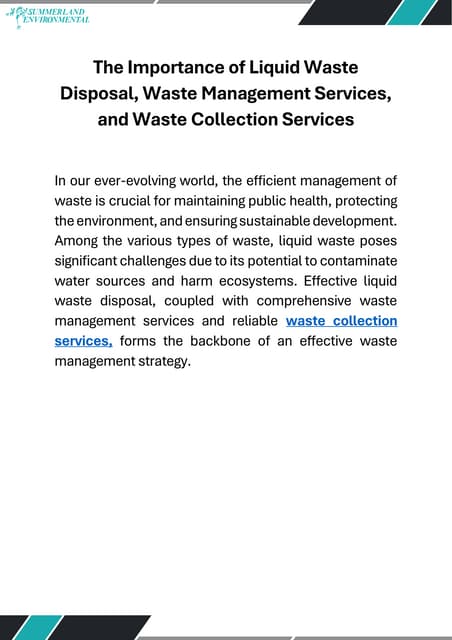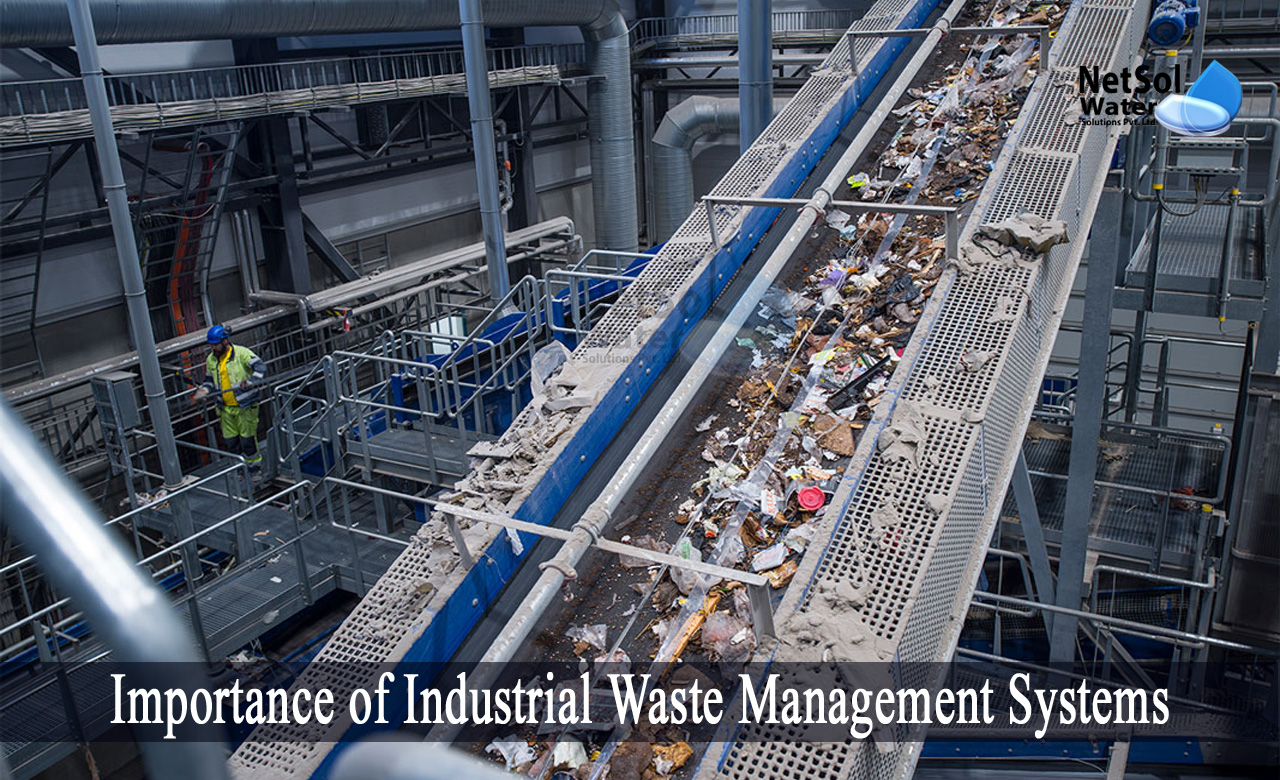The Main Principles Of Reclaim Waste
The Main Principles Of Reclaim Waste
Blog Article
Excitement About Reclaim Waste
Table of ContentsThings about Reclaim WasteThe Facts About Reclaim Waste RevealedThe smart Trick of Reclaim Waste That Nobody is DiscussingSome Of Reclaim WasteReclaim Waste Things To Know Before You Buy
Residential sewer waste refers to the waste and products from a property septic container. The appropriate management and disposal of residential sewer waste require fluid waste to be moved to a sewer therapy plant where the correct methods and equipment are used to cleanse and dispose of waste.
Commercial waste usually includes prospective risks, such as combustible materials or a blend of liquid and strong waste products, and calls for an advanced and detailed disposal procedure. The disposal of commercial waste usually entails the filtering of waste prior to transport to guarantee risk-free and appropriate disposal. Hazardous waste is created from by-products and overflow of commercial processes and manufacturing.
This sort of waste can not make use of the exact same sewer monitoring transportation or procedures as septic or commercial fluids. The commercial waste administration procedure calls for the assessment and testing of liquid waste prior to it undertakes the disposal procedure (liquid waste removal). Drainage waste is the fluid waste that originates from runoff and excess stormwater in highly populated areas or cities
Drainage waste can trigger contamination and flooding if not handled properly. Ensuring correct waste monitoring can stop catastrophes and reduce environmental harm.
How Reclaim Waste can Save You Time, Stress, and Money.
Call PROS Solutions today to find out about our waste administration and disposal services and the proper means to take care of the fluid waste you generate.
(https://pxhere.com/en/photographer-me/4429814)Do you recognize what occurs to your water when you disengage, flush the bathroom or drain pipes the cleaning device? No? Well, it deserves understanding. This so-called 'wastewater' is not just a crucial resource yet, after treatment, will certainly be released to our land, rivers or the sea. Utilized water from bathrooms, showers, baths, cooking area sinks, washings and commercial processes is called wastewater.

water utilized to cool down equipment or clean plant and tools). Stormwater, a form of wastewater, is overflow that streams from farming and metropolitan locations such as roof coverings, parks, gardens, roads, paths and gutters into stormwater drains pipes, after rain. Stormwater flows neglected directly to neighborhood creeks or rivers, ultimately getting to the sea.
The 15-Second Trick For Reclaim Waste
In Queensland, a lot of wastewater is dealt with at sewer treatment plants. Wastewater is transferred from residential or commercial websites via a system of sewers and pump stations, called sewage reticulation, to a sewage therapy plant. Neighborhood governments develop, preserve and operate most sewage therapy plants. Operators are accredited under the Environmental Management Act 1994 to release cured wastewater at an acceptable ecological criterion into rivers.
The Division of Natural Resources advises neighborhood federal governments regarding handling, operating and maintaining sewerage systems and therapy plants. In unsewered locations, city governments may need householders to install individual or house sewage treatment systems to treat residential wastewater from commodes, kitchen areas, washrooms and laundries. The Department of Natural Resources authorises the usage of house systems when they are verified to be reliable.
Most stormwater obtains no treatment. In some new neighborhoods, treatment of some stormwater to remove clutter, sand and gravel has actually begun using gross toxin traps. Wastewater treatment takes place in 4 stages: Gets rid of solid matter. Bigger solids, such as plastics and other objects incorrectly released to drains, are eliminated when wastewater is gone through displays.
Wastewater after that flows into huge containers where solids settle and are eliminated as sludge. Oil and residue are skimmed from the surface. Utilizes tiny living microorganisms called micro-organisms to break down and get rid of staying dissolved wastes and great particles. Micro-organisms and wastes are integrated in the sludge. Removes nitrogen and phosphorus nutrients that might cause algal blooms in our waterways and intimidate aquatic life.
How Reclaim Waste can Save You Time, Stress, and Money.
Nutrient removal is not available at all sewage treatment plants since it calls for pricey specialised equipment. It is coming to be more common in Queensland. Clear liquid effluent produced after treatment may still contain disease-causing micro-organisms. If this effluent is released into rivers such Homepage as rivers or the sea, the micro-organisms will ultimately die out.

This usually means wastewater needs to be treated or contaminants eliminated prior to it can be released to waterways. Many wastewater streams right into the sewage system. Under the Act, regional federal governments administer authorizations and licences for ecologically pertinent tasks (Ages) involving wastewater releases that might have a local impact. The division carries out approvals and licences to Ages involving wastewater releases that might have a local or statewide effect.
Fascination About Reclaim Waste
Monitoring supplies accurate details concerning water high quality and can validate that licence problems are being met. The information gotten through surveillance gives the basis for making water top quality decisions.
Report this page